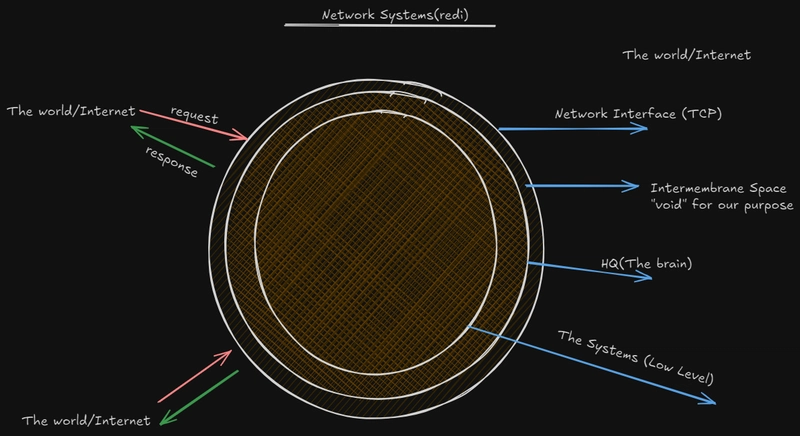I’ve been proudly learning C++ on and off for almost four years now.
after successfully seg-faulting Node.js with a node api C++ program and getting hopelessly addicted to the language, I think I’ve earned some leeway to advise on how to learn it.
C++ is a beast – metaphorically AND literally.
It’s so large that 7 days into a head-first deep dive, I’m still discovering new things. but once you learn "enough" of it, you can do some ridiculously cool stuff… with a huge chance of "shooting your leg off" in the process.
- Why Learn This Beast of a Language?
- 1. Learn C Very Well (Yes, Really)
- 2. Know Your Pointers
- 3. Header Files Are Contracts
- 4. Build Something You Care About 🫵
- 5. Make It Work → Then Make It Good
Why Learn This Beast of a Language?
It’s the bloodline of AAA games, game engines, and critical runtimes like Node.js. Want to get closer to the kernel? Embedded systems? AI can’t…👀 vibe coders can’t…
That’s power.
After years of trial and error (and the occasional distracted rabbit hole), here’s the roadmap that finally worked for me:
1. Learn C Very Well (Yes, Really)
“C compiles in C++, not the other way around.”
"C and C++ aren’t the same!" – I know.
C is simpler (not easier). C compiles in C++ – not the other way around. since C++ descends from "30-year-old C," the fundamentals transfer.
4 C Concepts to Learn:
1. The Type System
uint32_t vs. int32_t? The mysterious size_t?
2. Contiguous Memory & Buffers
char* str = "Hello World";
Your string(str) is a pointer to ‘H’.
3. Composite Types
struct person {…};
typedef struct {…} person_;
The difference? both let you craft custom data structures.
4. System Calls
Files, network sockets, kernel events (epoll). learn these, and you’ll understand how computers actually work
2. Know Your Pointers
In C++ you get smart pointers to the rescue:
ElementPtr childPtr(inpt);
addToParent(…, std::move(childPtr)); // Ownership transferred
If you don’t understand raw pointers and ownership semantics, smart pointers will feel like black magic and you'll end up "shooting your leg off".
Beej’s C Guide is an excellent resource to get started with C and pointers.
3. Header Files Are Contracts
Think of header files as promises: “Hey clang(put an IDE server here), trust me—I’ll give you the real function later.”
Here’s how a clean setup looks:
Header file:
// add.h
int add(int a, int b);
Cpp implementation:
// add.cpp
#include "add.h"
int add(int a, int b) {
return a + b;
}
usage:
// main.cpp
#include "add.h"
int main() {
int sum = add(1, 2);
return 0;
}
Compilation:
g++ main.cpp add.cpp -o sum
Do not include .cpp files inside other .cpp files.
Header files are how you break your project into clean, reusable parts.
4. Build Something You Care About 🫵
Tutorials are cool. But building something you actually want? That’s how you stay hooked.
Not sure what that is? Dig into that low-level itch you keep ignoring.
Purpose beats motivation, every time. you’ll debug linker errors at 3 AM for fun.
5. Make It Work → Then Make It Good
My mantra:
Code it ugly
Make it work
Make it work well
Refactor (when I’m smarter 😏)
Inspired by: Abstraction Bad? | Casey Muratori
"Premature abstraction is the root of all evil."
I Promise: It’s worth it. I’m 14 days into building my own GUI library and I’m hooked.
Bonus: Windows users – install Visual Studio 2022 or embrace WSL2. Your sanity will thank you.
You can find me here on x.
More Content
Free:




Top comments (5)
For wsl2, UI is natively supported now with WSLg short for Windows Subsystem for Linux GUI.
If you know you know, we've been using xlaunch at 13 fps, wsgl is native speed!
Oh, wow, this made me want to learn C++ sooner in the near future.
I promise you. you'll not regret it! beyond the hate C++ is super powerful! the things you can do omg 🔥
nice to see someone still profoundly interested in c++ .. it's been decades since i've written a program in C or C++ and loved that hard ass coding ;)
Lol I am hopelessly hooked! just did 2 back to back deep work sessions, I am addicted for real.